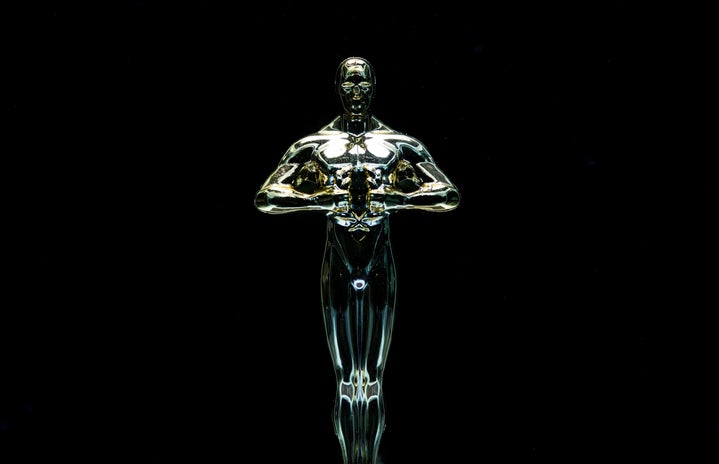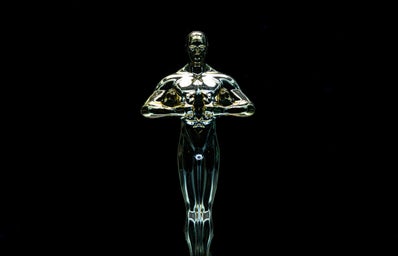1929. The beginning of one of the most known awards shows in the world: The Oscars. Of course, in almost a hundred years of history, the ceremony has changed quite a lot, from the name of the award — before 1934, it was named “Academy Award of Merit” – to the importance it has in the cinema community.
The Academy Awards started being broadcasted in 1954, and since then, it has been one of the most-watched ceremonies in more than 200 countries. But something that always stood out in each edition was their controversies. As an example, in the 1973 ceremony, when Marlon Brando received his second statuette in the Best Actor category for “The Godfather”. However, the actor didn’t show up for the celebration and Sacheen Littlefeather, a native-American, ended up going on stage on his behalf. During her speech, she made a declaration in favor of indigenous inclusion in the film industry.
The biggest turning point of the event was in 2016. When we analyze all the Oscar nominations we can understand a common problem: the lack of diversity. It is not limited to the races of the nominees, but also their nationalities, their cultures and their genders. That year, the host of the ceremony was the comedian and actor Chris Rock. In his opening speech, he talked about the lack of black nominees in the main categories and the lack of opportunity for these actors.
“Well, I’m here at the Academy Awards. Otherwise known as the White People’s Choice Awards”, joked. “Why this Oscars? It’s the 88th Academy Awards. Which means this whole ‘no black nominees’ thing has happened at least 71 other times, okay? You got to figure that it happened in the ’50s, in the ’60s”. He then continued saying: “Is Hollywood racist? I don’t know. It’s just, we want opportunity. Leo [DiCaprio] gets a great part every year.” Since then, the Academy made changes in the ceremony, with the intent of promoting more diversity in the nominations.
Six years later, in the 94th edition, changes really started to happen, even if they were subtle, such as the adjustment from Best Foreign Picture to Best International Picture. The most impactful changes happened within representation, especially in the 2020 event, when the winner of the Best Picture category, the most expected of the night, was “Parasite”, the south-korean movie that surpassed all boundaries and became the first non-English-language feature film to win the category.
However, these changes didn’t happen just because the Academy was truly concerned with the diversity within their nominees or even because they kept on with the changes in cinema, but rather due to something that I like to call “free spontaneous pressure”.
If the hashtag #OscarIsSoWhite didn’t reach Twitter’s trending topics in 2016, the Academy’s directors wouldn’t even include black, asian or latin actors in the main category nominations. If there wasn’t a social pressure for more nominations for female directors in the Best Director category, still dominated by men, Kathryn Bigelow would still be the only ever female director to have won an Oscar for the 2010 picture “The Hurt Locker”. If these changes hadn’t happened, the Oscars would still suffer with more drops in its audience, and that’s where we touch the organizers’ sensitive point: prestige.
Winning an Oscar statuette today doesn’t have the same relevance as 15 years ago. We recognize actors and directors much more for their work and how much they impact our society than having or not having an Academy Award. This loss of relevance reached its peak in 2009 with “The Dark Knight”. The film changed how the world viewed movies made for the Oscars and movies made for the public. By not being nominated for Best Picture, it created a great sense of injustice within the spectators. As much as it was not a social factor that promoted the questioning of the award’s veracity, the academy started being increasingly pressured.
In the current context, we see the Oscars more and more desperate for attention. Competing for the public’s attention became even more necessary. The lack of a personality that attracts a younger audience, the outdating of some categories and the nomination of the same group of actors (mostly whites and USA citizens) are just some of the points that discourage people from watching. If the ceremony doesn’t keep up with the evolution of cinema and doesn’t modernize itself, it will reach a point in which it won’t be broadcasted anymore. With that, the award would lose its relevance between the public and as something to be desired by artists.
Nonetheless, we see that the Academy is adapting itself – slowly – to modern cinema, with more diversity in the nominations. We must keep in mind, however, that it’s not that voters and organizers want the awards to be more in line with current society, but because they were pressured to take measures to change and not fall into oblivion. Besides, we can’t expect much from an award show that, out of 92 editions, 71 of them did not nominate any black artist in any category.
The article below was written by Marina Olim and edited by Julia Queiroz. Liked this type of content? Check out Her Campus Cásper Líbero for more!


